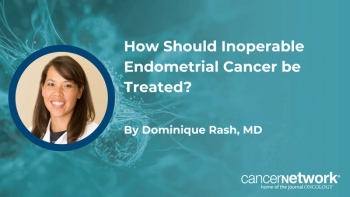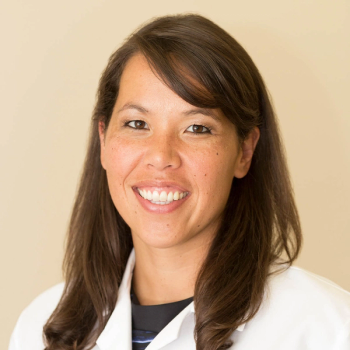
Age poses no barrier to non-myeloablative transplants in older patients
Age alone should not prohibit patients with acute myeloid leukemia and myelodysplastic syndromes from receiving curative allogeneic stem cell transplantation, according to researchers from Houston’s M.D. Anderson Cancer Center.
SAN FRANCISCO -- Age alone should not prohibit patients with acute myeloid leukemia and myelodysplastic syndromes from receiving curative allogeneic stem cell transplantation, according to researchers from Houston's M.D. Anderson Cancer Center.
Their research showed that outcomes for adults with AML and MDS over 65 were similar to those for younger adults after allogeneic stem cell transplantation, even after adjusting for multiple risk factors.
Over the past 12 years, non-myeloablative transplants that require smaller and safer doses of radiation and chemotherapy have been available to older and frailer adults, but little data are available on outcomes for these patients.
This new study of 1,080 allogeneic stem cell transplant cases included data from 89 international medical centers, according to lead investigator Sergio Giralt, MD. The results definitively showed that there was no difference in transplant-related mortality, acute or chronic graft-versus-host disease, or relapse when older patients were compared with younger adults (abstract 346).
"This aggressive therapy with curative intent has the potential to greatly expand productive life for patients with AML and MDS, and age should not be considered a contraindication," Dr. Giralt said.
Researchers analyzed data reported to the Center for International Blood and Marrow Transplant Research from 1995 to 2005 by age group. All patients had MDS or AML in first remission, had received reduced-intensity or non-myeloablative hematopoietic stem cell transplantation (HCT) from matched-related or unrelated donors, and were at least 40 years old. The 1,080 cases were made up of 545 patients with AML and 535 with MDS. Subjects were stratified into four age groups: 40 to 54 years, 55 to 59 years, 60 to 64 years, or 65 years or older.
The results showed no significant difference in outcomes across age groups, including transplant-related mortality, the authors stated. Rates of relapse were similar across all age groups (29% to 30% at three years). Also, no statistically significant impact of age was found for leukemia-free survival or overall survival.
However, the researchers discovered that disease type and disease status were significant risk factors for leukemia-free survival and overall survival at one year and for transplant-related mortality at two years. Patients' overall health and degree of tissue-type match were also significant at two years for almost all outcomes, the researchers said.
Although allogeneic HCT can be curative in older patients, its use has been limited by practitioner hesitance and uncertainty about payers. Currently, the Centers for Medicare and Medicaid Services cover HCT for AML patients but not those with MDS.
That may soon change. Dr. Giralt noted that the American Society for Blood and Marrow Transplantation, the Center for International Blood and Marrow Transplant Research, and several large academic centers will be presenting the case for coverage to CMS next year.
"This is a feasible and effective treatment, and age is not as important as we once thought it would be," Dr. Giralt said.
Newsletter
Stay up to date on recent advances in the multidisciplinary approach to cancer.





































